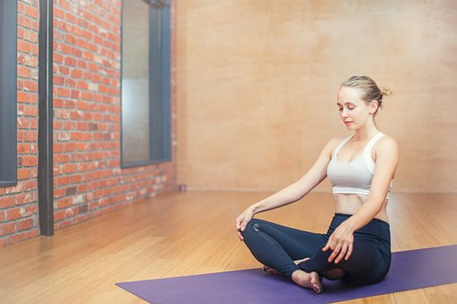The following is a post by a guest author:
Addiction is a complex disease, and the recovery process can be different for each person. The best scenario for treatment is one that’s specifically tailored to the individual needs of the recovering addict. Many treatment centers default to common, mainstream treatment approaches—and they are not always effective on their own. Some approaches are better than others at helping an individual identify what works for them in understanding their disease and establishing a stable recovery.
So when one treatment approach comes up short, it may help to try alternative tools. Fortunately, many treatments considered alternative have gained widespread acceptance in the medical community and, consequently, are more widely available than in the past. The following are a few “alternative” recovery tools that have proven useful for many people struggling with addiction or alcoholism.
Yoga and Meditation
One of the problems associated with drug addiction and the struggles of recovery is the disconnection of mind and body. Use of drugs or alcohol takes place despite knowing that such behavior is a form of self-destruction. It continues even though the individual knows that continuing to do so can result in personal destruction. Yoga and formal meditation can help restore this mind-body connection through concentration and contemplation. Yoga combines mindfulness and physical activity and produces a state of overall well-being. Its success has encouraged hospitals and rehabilitation centers to add yoga to treatment regimens in unprecedented numbers. Like EFT, the yogic/meditation treatment approach is adept at helping recovering addicts better understand deep-seated emotional problems.
Art Therapy
Many people are more comfortable expressing their feelings through artwork using a variety of artistic media, from pens and pencils to tissue paper and clay. It’s a way for a patient trying to come to terms with an addiction to ease into what can be a painful process of discovery. Art can be a relaxing form of therapy that can be explored with a therapist or pursued individually; the primary objective is to identify and confront emotional issues that contribute to one’s addiction.
Exercise
Physical exercise is also an effective form of therapy. Membership in a gym or participation in team sports can be powerfully self-affirming, as can taking a class in yoga or kickboxing or streaming a YouTube exercise video.
The proliferation of treatment approaches has made it easier to individualize treatment regimens. It’s an important point because addiction treatments should be applied based on individual needs. Alternative approaches that work for some people will not be successful with others.
Guest author Kimberly Hayes enjoys writing about health and wellness and created PublicHealthAlert.info to help keep the public informed about the latest developments in popular health issues and concerns. In addition to studying to become a crisis intervention counselor, Kimberly is hard at work on her new book, which discusses the ins and outs of alternative addiction treatments.














Kimberly,
You pulled me in with the title. Thank you for this piece. As a recovered addict and a woman in the healing arts, I absolutely appreciate your disciplines. I will look up publichealthalert.info and see what else I can learn. I have been in recovery since 2004. I have been in bioenergetics since 2011 and I have provided neurofeedback and energy work for several years now. I have seen radical shifts when the brainwaves are stabilized. All the modalities you speak of “teach” the brain to stabilize. Alas, I am not allowed to promise anything to my clients, as results do vary, but the trend is overwhelmingly positive. Thank you for your work and bringing this knowledge to all who seek.
Lisa ♥